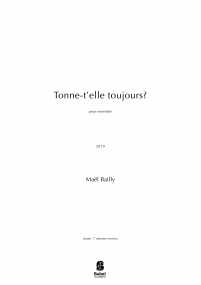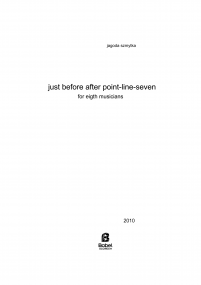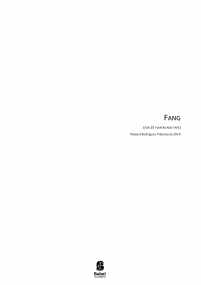Recherche avancée
LSD - Lovers Seeing Darkness
ISMN : 979-0-2325-7225-3
- Identifiez-vous pour créer une liste
Floating artifice
Among the readings that kept me company during the quarantine was a book that I had bought some time ago, the contents of which I was familiar with, but which I never studied. I am referring to Judith Butler's Gender Trouble (1990). On page 6 of the original edition, the following can be read
[...] When the constructed status of gender is theorized as radically independent of sex, gender itself becomes a free-floating artifice [...]
That statement raised important questions that were absorbed by contemporary feminist, transfeminist, queer and LGBT* communities, helping those diverse realities to intercept new perspectives on their identity.
However, if we broaden the reasoning that arises from the application of these principles to the arts, in this case to musical production, we can pave the way to an idea of constructive research that involves composer and performer in various ways.
We could rephrase Judith Butler's sentence as follows
[...] When the constructed status of the instrument is theorized as radically independent from the organological tradition that produced it, the instrument itself becomes a free-floating artifice [...]
The composer is asked whether it is the instrument, which came to us as a result of a historical process of organological evolution, with its coded analogue timbre, the object from which to draw the sounds or it should not itself be the subject of composition. “Composing means building an instrument” wrote Lachenmann: the alteration of the instrument, to adapt it to the needs of our imagination, becomes a possible presupposition of the compositional process. The instrument is, as an object, a prosthesis of the performer's own body, which in turn can be imagined as a sound box. What if the synthesis between the sounds of the body and the sound produced by the instrument, as tradition has handed it over to us or perfected to meet the needs of the individual project, were not actually a possible answer to these questions?
Bass clarinet
Trumpet
Horn (French Horn)
Percussions
Piano
Harp
Violin
Violin (2)
Viola
Pages - 26








